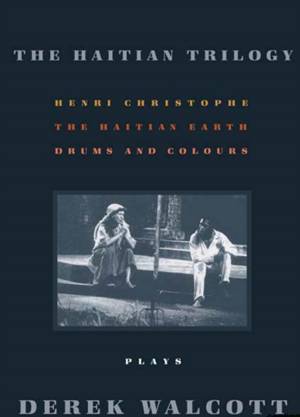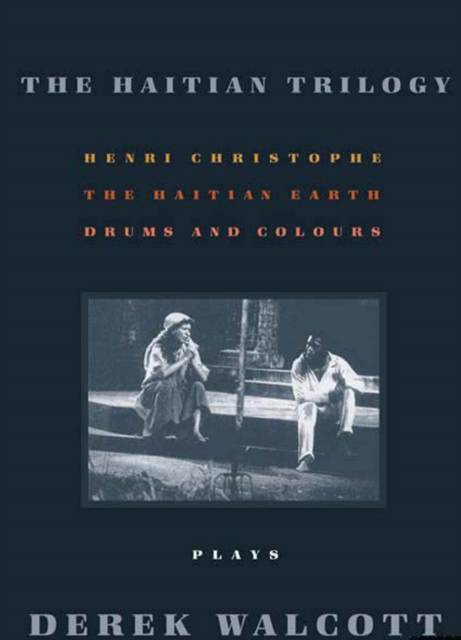
- Retrait gratuit dans votre magasin Club
- 7.000.000 titres dans notre catalogue
- Payer en toute sécurité
- Toujours un magasin près de chez vous
- Retrait gratuit dans votre magasin Club
- 7.000.000 titres dans notre catalogue
- Payer en toute sécurité
- Toujours un magasin près de chez vous
The Haitian Trilogy
Plays: Henri Christophe, Drums and Colours, and the Haytian Earth
Derek Walcott
Livre broché | Anglais
38,95 €
+ 77 points
Description
Three plays by the Nobel-laureate Derek Walcott, brought together for the first time in The Haitian Trilogy
In the history plays that comprise The Haitian Trilogy--Henri Christophe, Drums and Colours and The Haytian Earth--Derek Walcott, recipient of the Nobel Prize in Literature, uses verse to tell the story of his native West Indies as a four-hundred-year cycle of war, conquest and rebellion.
Spécifications
Parties prenantes
- Auteur(s) :
- Editeur:
Contenu
- Nombre de pages :
- 448
- Langue:
- Anglais
Caractéristiques
- EAN:
- 9780374528133
- Date de parution :
- 15-05-02
- Format:
- Livre broché
- Format numérique:
- Trade paperback (VS)
- Dimensions :
- 140 mm x 216 mm
- Poids :
- 521 g







